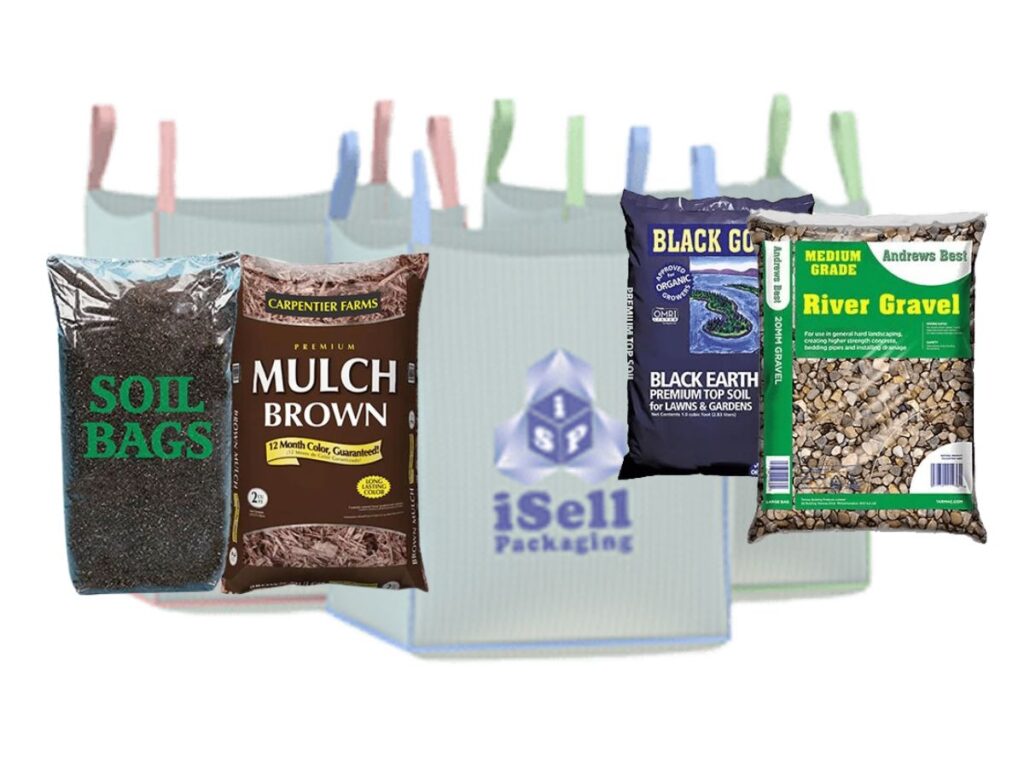When it comes to industrial operations, one of the most critical decisions is choosing the right industrial bag for your needs. Whether you are in the business of storing, transporting, or packaging goods, the choice of an industrial bag can significantly impact your efficiency, product quality, and bottom line.
In this guide, we will explore the key factors to consider when selecting the best industrial bag for your business, ensuring that you make an informed decision that aligns with your specific requirements.
Understanding the Variety of Industrial Bags
Before diving into the selection process, it’s essential to have a basic understanding of the various types of industrial bags available in the market. Here are some common types:
1. Large Industrial Bags
Large industrial bags are designed to carry bulky and heavy materials. They come in various sizes and materials, making them suitable for a wide range of applications, from construction to agriculture. These bags can hold significant quantities of materials, and their durability ensures that they can handle the weight and stress associated with heavy loads.
When choosing large industrial bags, you’ll want to consider the specific dimensions that will accommodate your materials. The size of the bag should align with the volume and dimensions of the products you plan to store or transport. It’s also crucial to assess the bag’s material quality for durability and resistance to wear and tear, especially if it will be subjected to harsh conditions.
2. Industrial Storage Bags
Industrial storage bags are specifically designed for long-term storage of products. They often feature protective elements such as UV resistance and moisture barriers to preserve the quality of stored goods. These bags are essential for industries that need to maintain the integrity of their products over extended periods.
When selecting industrial storage bags, consider the materials used in their construction. UV-resistant materials are crucial if your goods will be exposed to sunlight. Additionally, look for bags with moisture barriers or airtight seals if your products are sensitive to humidity or moisture. The ability to protect your products from environmental factors is a key consideration in preserving their quality.
3. Industrial Bulk Bags
Bulk bags, also known as Flexible Intermediate Bulk Containers (FIBCs), are ideal for transporting and storing large quantities of dry bulk materials, including chemicals, minerals, and agricultural products. A large load can be carried by these bags due to their versatility and durability.
When choosing industrial bulk bags, it’s essential to determine the bag’s capacity and weight-bearing capabilities. The capacity should align with the volume of materials you need to transport or store. Additionally, assess the bag’s construction for durability and strength, as it will need to withstand the stresses associated with bulk materials.
4. Industrial Plastic Bags
Industrial plastic bags are versatile and widely used in various industries. They come in different thicknesses and designs to accommodate both lightweight and heavy-duty applications. Plastic bags offer a range of benefits, including cost-effectiveness and versatility.
When opting for industrial plastic bags, consider the thickness of the plastic. Thicker plastic bags are better suited for heavy-duty applications, while thinner ones are ideal for lightweight items. Additionally, evaluate whether the bags need to be sealed or resealable for easy access to the contents. Plastic bags can be an economical choice, but it’s essential to select the right type to ensure they meet your specific requirements.
5. Industrial Heavy-Duty Bags
Heavy-duty bags are engineered to withstand extreme conditions and heavy loads. They are commonly used in construction, mining, and industries requiring rugged packaging. These bags are designed to handle the toughest tasks and are known for their durability and strength.
When considering industrial heavy-duty bags, it’s crucial to assess the bag’s construction and material quality. Look for bags made from robust materials such as woven polypropylene, which can withstand the most demanding conditions. Additionally, consider features like reinforced handles and closures for added convenience and security.
Factors to Consider When Choosing an Industrial Bag
Now that you’re familiar with the types of industrial bags available, let’s explore the key factors to consider when making your selection:
1. Material Quality
The choice of material is critical and depends on the nature of the products you intend to store or transport. For example, heavy-duty materials like woven polypropylene are suitable for rugged applications, while polyethylene bags may be better for protecting against moisture.
2. Size and Capacity
Based on your specific requirements, determine the bag’s size and capacity. Consider factors such as volume, weight, and dimensions of the products you’ll be handling.
3. Durability
Assess the bag’s durability by examining its construction, stitching, and resistance to tearing. Ensure it can withstand the conditions it will be exposed to, whether that’s extreme weather or heavy machinery.
4. Safety Features
If you’re dealing with hazardous materials, look for bags with safety features such as tamper-evident seals or antistatic properties to prevent accidents and contamination.
5. Cost Efficiency
While it may be tempting to choose the least expensive option, take the bag’s overall cost-efficiency into account. Investing in a higher-quality bag upfront may save you money in the long run by reducing the need for frequent replacements.
6. Environmental Impact
It is crucial to take into account the environmental impact of your packaging choices in today’s eco-aware world. If sustainability is important to you, search for bags that are made of recyclable or biodegradable materials.
7. Ease of Handling
Consider the practicality of handling and storing the bags. Features like handles, closures, and stackability can make a significant difference in the efficiency of your operations.
8. Regulatory Compliance
Depending on your industry, there may be specific regulations governing the type of bags you can use for certain materials. Ensure that your chosen bags comply with these regulations to avoid legal issues.
Conclusion
Business owners should take care when choosing industrial bags for their businesses. By understanding the types of bags available and considering factors like material quality, size, durability, safety features, cost efficiency, environmental impact, ease of handling, and regulatory compliance, you can make an informed choice that aligns with your specific needs.
At iSell Packaging, we offer a wide range of industrial bags designed to meet the diverse requirements of businesses across the USA. Our team is committed to helping you find the perfect solution for your packaging needs. Contact us today to explore our selection of large industrial bags, industrial storage bags, industrial bulk bags, industrial plastic bags, and heavy-duty bags. Make the right choice and elevate your industrial operations with the best industrial bag for your business.
In conclusion, selecting the best industrial bag for your business is a multifaceted process that requires careful consideration of your specific needs and goals. By taking the time to assess the materials, size, durability, safety features, cost efficiency, environmental impact, ease of handling, and regulatory compliance, you can make a well-informed decision that not only meets your immediate requirements but also contributes to the long-term success of your industrial operations. Remember that investing in high-quality industrial bags can lead to increased efficiency, improved product quality, and cost savings in the long run. Choose wisely, and your industrial bag will become a valuable asset to your business.





